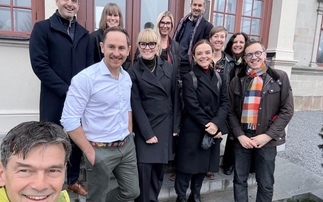A rapidly growing part of the business world knows that moving to an energy efficient and low-carbon economy makes economic sense argues Sky's Fiona Ball
There is a huge opportunity for the ongoing negotiations at COP21 to influence how quickly and how successfully we move towards a low-carbon economy, dependent on the strength of the global agreement that emerges over the coming week.
From countries, to businesses, to wider society, I'm hopeful that following the good start that we've seen at the talks, we will see a framework that sets out emission reduction targets, enables low-carbon growth and facilitates forest protection. After all, many businesses have been recognising for some time that a shift to a low carbon economy is essential to our long-term competitiveness.
At Sky, we think we have an important role to play in tackling climate change. We depend on the environment to help keep our business running, right from the energy we use, to the raw materials required to make our products. We know operating efficiently, saving energy and using natural resources wisely is helping us build a more durable business, better products for our customers, and contributing to a more sustainable future for everyone.
Since becoming the first media company in the world to go carbon neutral in 2006, we've reduced our carbon intensity by 38 per cent from our 2008/09 baseline, well on the way to our target of halving our carbon intensity by 2020. How have we done this?
We have recognised the importance of reducing our impact and protecting our future energy supply, agreed on what level of change we needed to make in order to make a difference, and set ourselves a strong set of environment targets and actions that have helped us to focus our efforts and drive progress. We've also focused on the energy efficiency of our products and low-carbon investments, particularly on-site renewable energy and helping to support the development of renewable energy in India and China through our carbon offsetting.
And as Europe's largest entertainment company, we reach beyond our business to raise awareness and drive positive change on environmental issues. For example, over the next three years, Sky will work with WWF to raise awareness of the environment, getting behind campaigns like WWF's Earth Hour to inspire consumers to take action on climate change.
The Paris talks have been positive and the engagement of businesses and society to help deliver progress has been impressive. At Sky we'll continue on our low-carbon path regardless of the outcome in Paris, as we know we must in order to build a durable businesses for the long-term. But for wider society, a strong global agreement to tackle climate change is important because it will enable countries around the world to attract more investment in energy efficiency and renewable energy infrastructure and send a strong signal to governments about the important role they have to play.
Fiona Ball is head of responsible business at Sky
This article is part of BusinessGreen's Road to Paris hub, hosted in association with PwC.






